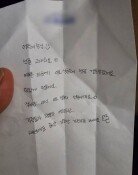Lee Mi-jas 55 years, Nam Jins 50 years
Lee Mi-jas 55 years, Nam Jins 50 years
Posted April. 10, 2014 00:10,
For countless nights, suffering from heartbreaking pain, how much have I wept . When singer Lee Mi-ja started singing Dongbaek (Camellia) Lady onstage at a concert hall in Frankfurt, Germany on November 26 last year, audience members who were formerly mines and nurses dispatched to Germany from Korea in the 1960s and 1970s, could hardly stop crying. They naturally recalled sorrow and sad memories they had kept deep in their hearts for half a century. The concert, which marked the 50th anniversary of dispatch of Korean miners and nurses to Germany, was entitled Lee Mi-jas Guten Tag, Dongbaek Lady. An audience member remarked in the show aired on TV, I had been consoled a lot from a difficult life of the time with this song.
Lee released Dongbaek Lady in 1964. More than 100,000 pieces of her album with this song were sold at the time, when Korea was still so poor that it was suffering from mass starvation in spring. The song enjoyed popularity comparable to a million seller in todays standard, but was banned by the authoritarian government due to its allegedly grievous feel and Japanese style. More than 20,000 Korean miners and nurses in Germany would sing the song that their motherland had banned, whenever they could hardly stop crying due to deep nostalgia of their hometowns. To these people, Lees song was not merely a popular Korean song, but a friend who consoled their sadness of a tough life in a foreign land.
Lee, dubbed The Queen of Elegy, who has generated more than 500 albums and over 2,000 songs, will launch today her national concert tour dubbed Lee Mi-jas 55-year singing life, at the Sejong Center for the Performing Arts. The event will commemorate the 55th anniversary of her singing career since her debut at age 19 in 1959 with the song 19-Year-Old Girls Pure Love. There is another piece of welcome news. Singer Nam Jin, 68, who was dubbed Korean Elvis Presley, will also kick off his national singing tour marking 50th anniversary of his debut on May 3. Since his debut with Seoul Play Boy in 1964, Nam has released more than 1,000 songs, and remains popular as original beloved male singer even today.
Despite their advanced ages of around 70, they continue their singing careers. This is because they still have a flurry of big fans whose life was consoled by their songs. Is it close companionship as comrades, who had to move to Germany and Vietnam to make money, as they struggled to overcome poverty after losing the nation (to Japan) and experiencing devastating war? We pay the same respect, as deep as that to the life of these singers who have made legendary achievements in the history of Korean popular song, to the arduous life of adults of that era who endured and overcame the passing of difficult time.
Editorial Writer Koh Mi-seok (mskoh119@donga.com)







